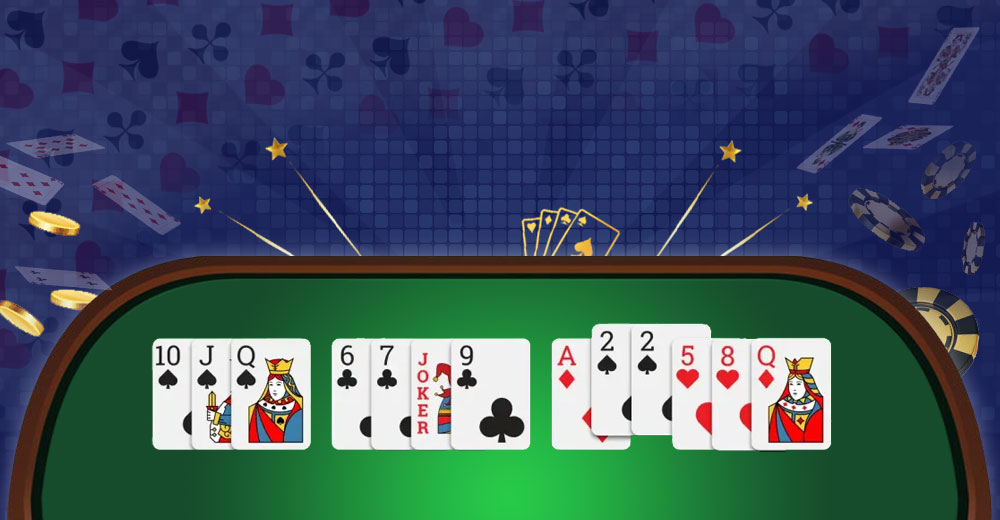Key Mistakes Beginners Make in Pool Rummy
Pool Rummy is one of the most strategic formats of IndianRummy, requiring sharp thinking, patience, and consistent awareness of the scoreline. Unlike other versions where each round is scored separately, Pool Rummy carries forward your points until elimination. Many newcomers to the Indian rummy card game struggle to adjust to this format and unknowingly repeat avoidable errors that cost them the game early. Understanding what not to do is often as important as learning correct strategies. This article highlights the most common missteps made by beginners in Pool Rummy and how steering clear of them can boost your longevity and performance.
1. Ignoring the Importance of the Drop
One of the primary strategic tools in Pool Rummy is the drop. Beginners often overlook it entirely or hesitate to use it early, fearing they may lose out on a potential win. In Pool Rummy, holding on to a bad hand just to see what happens can lead to accumulating high points quickly, bringing you closer to elimination. According to Indian rummy rules, a first drop typically costs 20 points, while a middle drop costs 40—both far better than facing a full hand of 80+ points. Knowing when to cut your losses is not weakness; it’s experienced play.
2. Playing Every Hand Aggressively
Enthusiastic players tend to go all-in on every deal, attempting to form complex sets and sequences with high-value cards. In the long run, this approach usually backfires. Pool Rummy is not about flashy wins but consistent, low-score gameplay. Keeping your point total down across rounds is critical. Beginners should focus on quick formations of valid hands and be ready to shift to a defensive style when the cards demand it. Aggression without calculation is one of the most common errors in Indian rummy online matches.
3. Mismanaging High-Value Cards
New players often keep Kings, Queens, and Aces too long in the hope of forming a sequence or set. While these cards can yield higher points in classic gameplay, they’re risky to hold in Pool Rummy. If you're forced to drop or lose, these cards significantly increase your point tally. Seasoned players know to discard them early unless they fit directly into an existing sequence. Managing point-heavy cards is a small action that leads to a large advantage over multiple rounds.
4. Disregarding Opponent Behaviour
One of the unique traits of Pool Rummy is its predictability over time—players develop patterns, and those can be read. Beginners often focus solely on their own hands, ignoring what opponents are discarding or picking up. This lack of awareness can result in unintentionally helping others complete their hands. Watching discard piles, noticing sudden changes in opponents’ habits, or tracking jokers being drawn can help you anticipate their moves and respond intelligently. Mastery in online rummy game environments often depends as much on observation as on your own hand.
5. Misusing the Joker Card
The joker is powerful—but only when used with purpose. Many new players rely on jokers to form all types of sets without first securing a pure sequence, which is essential for a valid declaration in Pool Rummy. If your joker is the centrepiece of your strategy and your pure sequence remains incomplete, you're walking a dangerous line. First prioritise your pure sequence. Only then should you look to use jokers to complete the remaining hand. Misusing jokers not only invalidates hands but also results in unexpected point burdens.
6. Declaring Without Double-Checking
Excitement or overconfidence leads many beginners to hit the declare button too quickly. A false declaration in Pool Rummy results in a penalty of 80 points, which is often enough to knock you out of contention. Always review your hand: ensure you have a pure sequence, proper grouping, and valid sets. Make it a habit to double-check before confirming. In fast-paced Indian rummy online games, hasty declarations are surprisingly common—and easy to avoid with a few extra seconds of review.
7. Neglecting Score Awareness
In Pool Rummy, you don't just play the cards—you play the scoreboard. Beginners often fail to track their points after each deal. Not knowing when you're close to the cut-off can lead to risky moves or missed opportunities for early drops. Always keep a mental note of your score and that of your opponents. It helps you decide whether to play safe or be aggressive, whether to drop or fight for a win. Score awareness is what turns a good player into a strategic one in this version of the Indian rummy card game.
Conclusion – Avoiding simple errors is your strongest early-game strategy.
Success in Pool Rummy is less about flashy hands and more about reducing errors, especially as a beginner. Knowing when to drop, when to hold, and how to evaluate risk with each move can dramatically increase your survivability in a game where every point counts. The long-form nature of Pool Rummy requires a patient, informed, and constantly evolving approach. By learning to manage cards wisely, understand scoring implications, and recognise strategic moments, beginners can progress quickly from casual players to consistent contenders. Mistakes will happen—but avoiding these key ones builds a solid foundation for long-term improvement.




